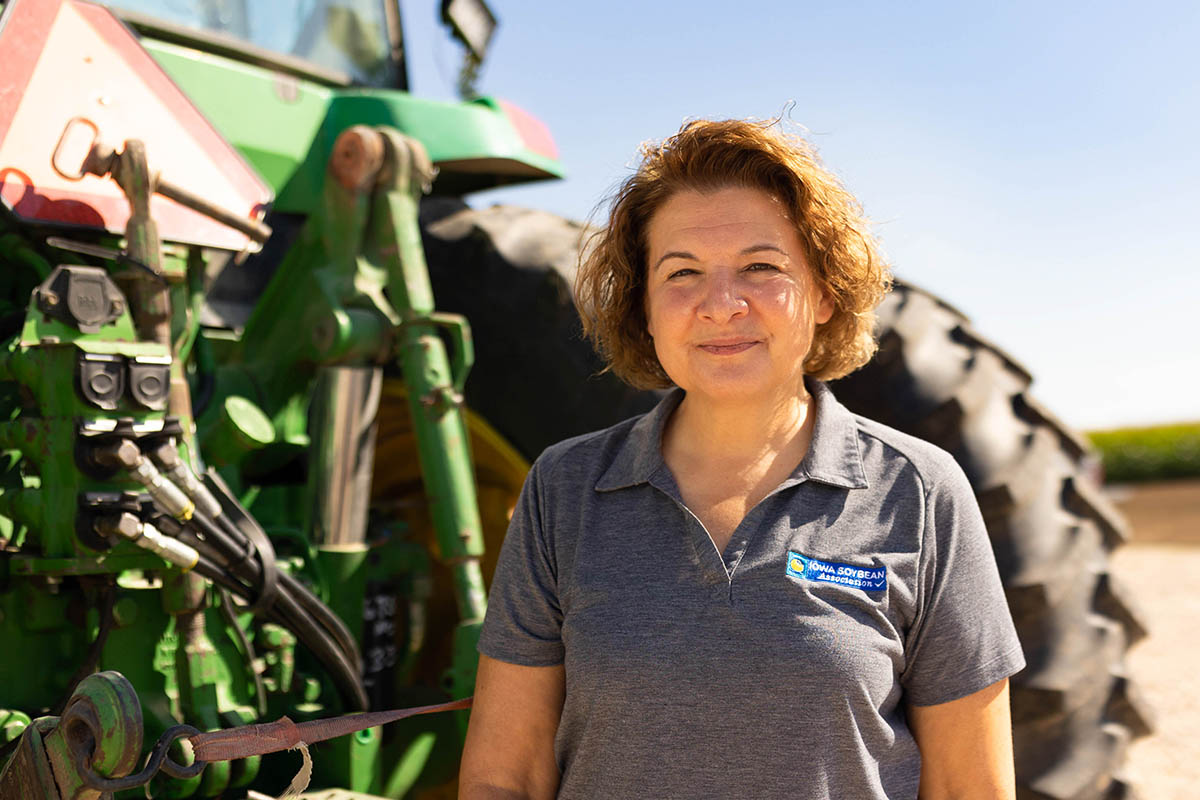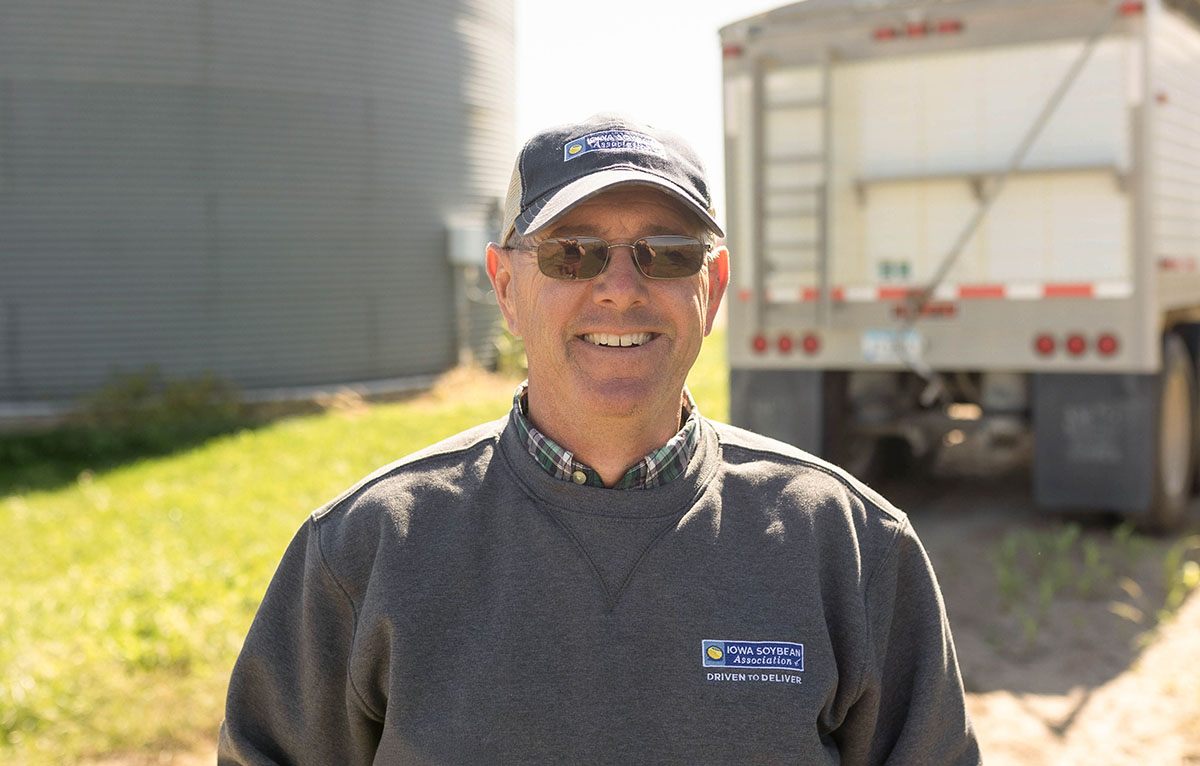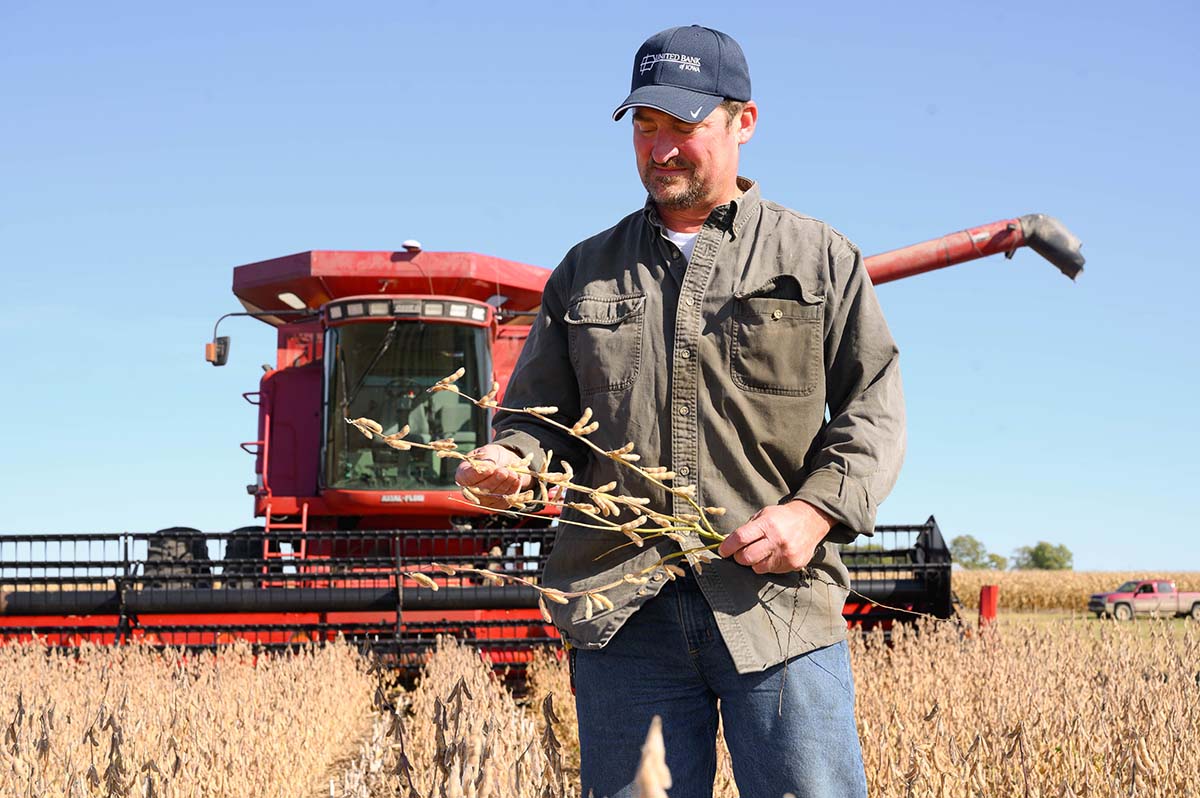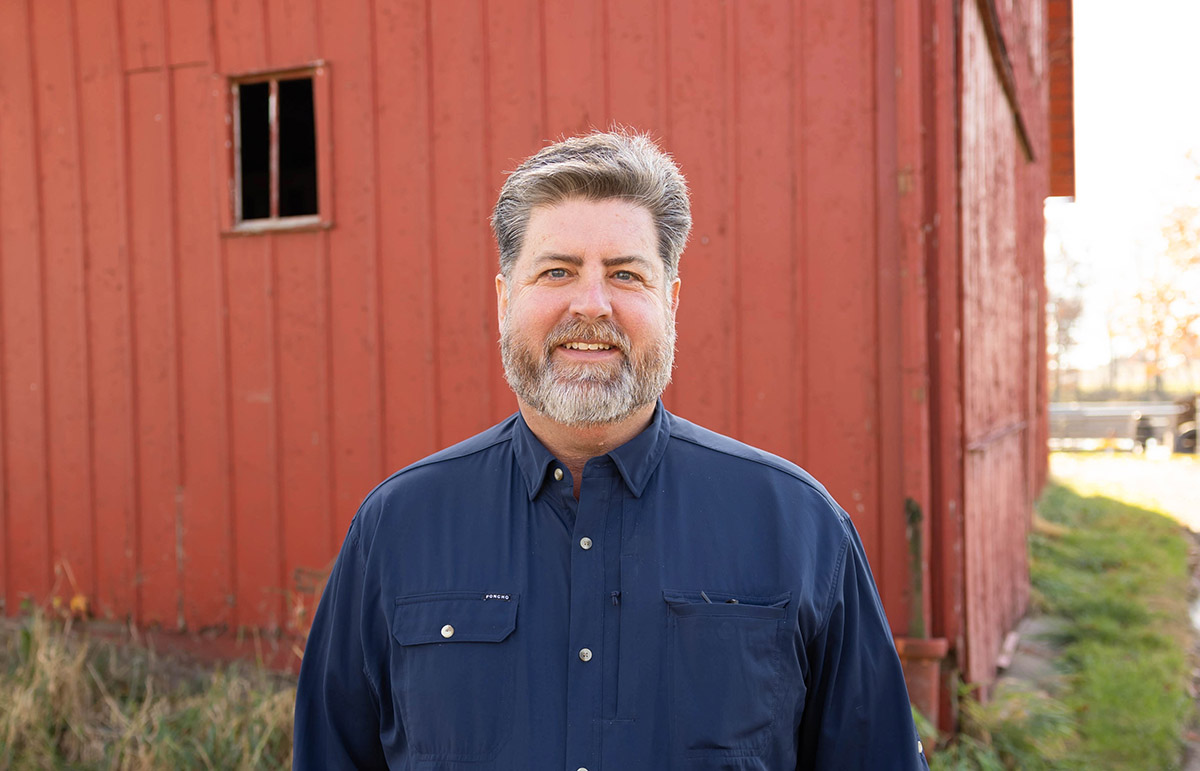
(Photo: Iowa Soybean Association / Joclyn Kuboushek)
Farmers at work - Growing soy's global future
October 31, 2025
Written by Kriss Nelson and Brock Johnston.
From livestock feed to biodiesel, soybeans touch nearly every corner of the world. Behind the scenes, farmer-led organizations are working to keep U.S. soybeans and the protein they provide at the center of global markets.
We asked farmer representatives to share how other organizations support demand-building opportunities for U.S.-grown soybeans.
United States Meat Export Federation (USMEF)
The United States Meat Export Federation (USMEF) represents producers, feeders, packers, processors, purveyors, traders, farm, supply and service organizations across the beef/veal, pork, lamb, oilseeds and feedgrains sectors.
USMEF's mission is to increase the value and profit opportunities for the U.S. beef, pork and lamb industries by enhancing demand in export markets through a coordinated and collaborative partnership of all stakeholders.

"USMEF works to create new opportunities and develop existing markets internationally for U.S. beef, pork and other meat products. Since soybeans support animal agriculture as a major feed source, the soybean industry provides support for USMEF's efforts for these finished products. Many regions around the world have a growing middle class, income or population. This means that demand for high-quality sources of protein is growing. The Iowa Soybean Association has been actively engaged with USMEF since the 1980s, making sure our checkoff dollars are helping to promote U.S. meat products and strengthen our industry. Pork exports alone supported about 13 percent of the per bushel soybean value in 2024."
Randy Miller, Lacona, ASA board member
U.S. Soy Export Council (USSEC)
The U.S. Soybean Export Council (USSEC) champions U.S. soy worldwide. Through innovation, sustainability and partnerships, they connect farmers to global markets. USSEC members represent the soy supply chain, including U.S. soybean farmers, processors, commodity shippers, merchandisers, allied agribusinesses and agricultural organizations. USSEC is funded by the U.S. soybean checkoff, USDA Foreign Agricultural Service (FAS) matching funds and industry.

"As a farmer, I see firsthand how the U.S. Soybean Export Council (USSEC) helps open doors for our soybeans around the world. They build strong relationships with international buyers, promote the quality and sustainability of U.S. soybeans, and help develop new markets by building customer preference. This work helps drive soybean demand and makes sure we have access to customers beyond our domestic markets. In the global market, we can't just grow it — we've got to sell it with a value proposition. And that's exactly what USSEC helps us do. I've participated in several trade missions around the world and know our international partners appreciate putting a farmer's face to the product we're selling."
Tim Bardole, Rippey, USSEC director
United Soybean Board (USB)
Led by farmers, the United Soybean Board (USB) uses the soy checkoff to create new opportunities for increased demand and a better bottom line for U.S. soybean farmers. Whether it's production research, working with the supply chain or finding new markets for soy oil and meal both here and abroad, the farmers leading the soy checkoff investment efforts has its farmers' best interests at heart when investing the checkoff resources for maximum ROI.

"USB covers everything from supply and production to demand, selling soybeans both domestically and internationally. For every $1 a farmer invests in the checkoff, there is a $12.30 return on investment to farmers. That return adds real value to our crop. The great thing about USB and Qualified State Soybean Boards is that money goes directly to work for U.S. and Iowa soybean farmers, whether through new industrial uses, livestock feed or human health opportunities. In livestock nutrition, USB is funding research on poultry, hogs and now dairy cattle using Plenish high-oleic soybeans, which is exciting. Soybeans and corn aren't the same plants they were 40 years ago, and livestock has changed too; therefore, research helps ensure that what we feed is current. That's valuable information for nutritionists, and soybeans are an excellent protein source for livestock."
Suzanne Shirbroun, Farmersburg, USB director
American Soybean Association (ASA)
The American Soybean Association (ASA) represents U.S. soybean farmers on domestic and international policy issues important to the soybean industry. Policy development starts with our farmer/members and culminates at the annual meeting of voting delegates. ASA is tasked with accomplishing the policy goals established by the farmers/members/delegates. ASA does this by testifying before Congress, lobbying Congress and the administration, contacting members, communicating to relevant audiences and meeting with the media. This legislative process cannot happen without member input and support.

"ASA is mainly a policy organization, but trade is a big part of what we do. Our D.C. office works to encourage trade talks, ensure the right people are at the table, and keep soybeans front and center in export discussions. This summer, our ASA officer team met with Assistant U.S. Trade Representative for Agricultural Affairs and Commodity Policy Julie Callahan and her team. We had a good conversation about making sure soybeans are top of mind, explaining the harm farmers face if trade doesn't move. Soybeans and ag exports were at the forefront of that discussion. Even before issues with China, we've been working with World Initiative for Soy in Human Health (WISHH) and USSEC to find new markets. We've seen success in Egypt and Southeast Asia. At the end of the day, what we're really trying to do is build a lasting preference for U.S. soy in developing markets."
Dave Walton, Wilton, ASA board director
Back